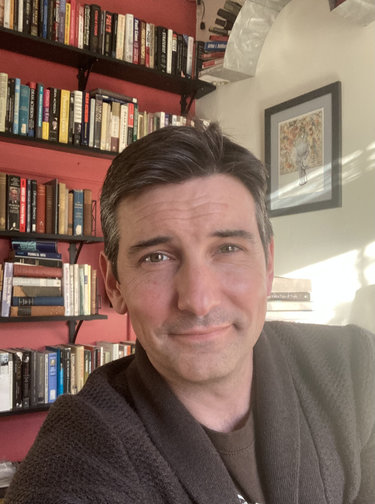Historian Irwin notes that no empire has expanded forever
GUILDERLAND — “The United States has denied the existence of its own empire,” says Ryan Irwin.
Irwin is an associate professor of history at the University at Albany and has written books about the shifting world order.
“Gordian Knot: Aparthied and the Unmaking of the Liberal World Order” explores how African independence altered the international system at the height of the Cold War, and “Vast External Realm: America and the Invention of the Free World” probes some of the assumptions that underlay American world power.
Irwin spoke to The Enterprise on Friday, the day after the Russian army started its attack on Ukraine.
When African states first joined the United Nations, Irwin posits, the United States was challenged in profound ways. South Africa was an “unapologetically racist state” and so was thought to have no place in the United Nations yet the United States itself was practicing Jim Crow.
The United States has expanded its influence over the course of the 20th Century while denying its existence as an imperial power, Irwin says. He sees liberal institutions equating freedom with certain rights, like the right of expression, the right to life, and the right to property — and thereby naturalizing and extending American power.
Even decolonization fits this pattern. “We’re going to take apart these old European empires, grant self-determination, but then make sure that those states have a seat at the United Nations, which happens to be located in New York City,” says Irwin.
“We’re watching that argument fall apart,”said Irwin in this week’s Enterprise podcast. Today, far fewer Americans than in the 1990s or early 2000s are willing to see the United States as something other than an empire, he said.
The right and the left take that insight in very different directions. Donald Trump and his followers celebrate the American empire as an instrument to take resources at a moment of climate change and hoard those resources.
At the same time, he says, the left “sees liberalism as an obstacle to real freedom from racial capitalism, from capitalism that is profoundly racialized and unequal.”
On the international stage, American authority is being contested by Russia in eastern Europe and may be by China on the other side of the rim of Eurasia.
Globalization, as a process, ended in the mid-19th Century; since then, the world has largely been an interconnected system, says Irwin. Since the mid-20th Century, the United States has exercised control over the southern rim of Eurasia.
“We are right now living through kind of the political and the intellectual collapse of something we thought was very natural and very normal,” said Irwin.
He also said, “Part of what Putin is doing is challenging American influence in the Ukraine because he knows very well that the United States is on the decline right now. And the question to ask is whether or not China is going to do the same thing on the other end of this rim of Eurasia.”
The United States was different from other empires right from its start, says Irwin. “New York didn’t spread across Ohio and end up in Oregon. We actually created new states in this frontier and those states then joined the union.”
That concept has been scaled off the continent, into the hemisphere, and then around the globe. Irwin cites the way the United States managed its empire after the Spanish-American War at the end of the 19th Century.
Mid-level colonial officials were invested in proving the difference between how the American empire in the Philippines and elsewhere functioned differently than other empires. “And the idea was what sets the United States apart is to go back to the trifecta: We recognize the right to your life, the right to property, and the right to self-expression.
“We recognize those rights and we protect those rights with sovereign states. But the sovereign states always belong. They always belong in an international community that has rules. And the most important rule is that no state can pick a fight with any other state, and all states have to trade freely with one another.”
The tension arises when someone is given a seat in the international community but doesn’t hold the same values as the United States. “For me,” says Irwin, “the story of America in the world is how we open up these doors with a certain set of expectations and how the actual process of conversing has to change … I’m not sure if the formula is going to work much longer.”
Irwin notes there is no example in history of an empire that just expands forever. He believes American powers are on the retreat. He also believes both world wars were triggered by “declining powers who are grasping onto authority.”
It would be good for people in the United States to discuss how to decline responsibly “so that we don’t commit to a war we can’t win,” says Irwin.
The isolation caused by the pandemic over the last two years has accentuated the reality that most of our lives are lived locally, Irwin says.
He believes it’s important to break down the barriers between academia and people outside that rarified world. Put simply, Irwin advises, “Just talk to your neighbor.”



